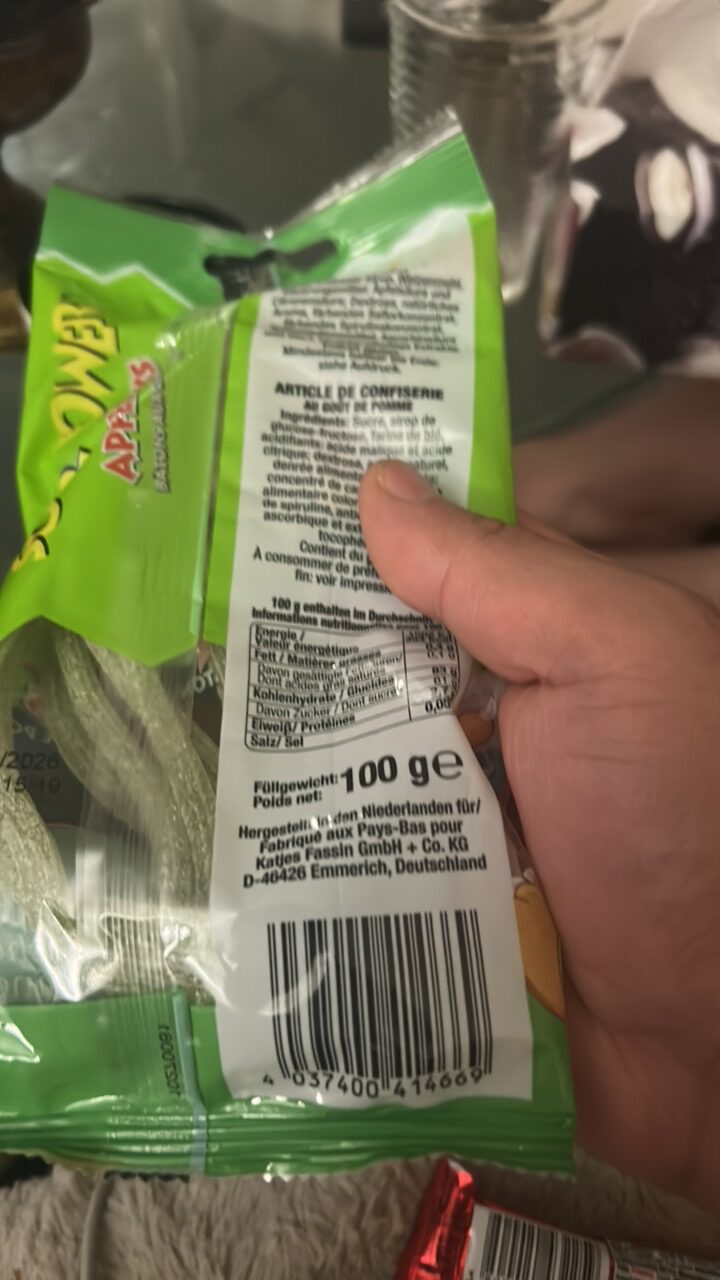
Barcode: 4037400414669
unknown
DOUBTFUL
📝 Reason: The product contains ingredients with doubtful Halal status due to unspecified sources (gelatin, flavouring, food color). Islamic dietary laws require clear Halal certification for such ingredients to ensure compliance. Without explicit certification, these ingredients are considered doubtful. Quran 5:3 and various Halal certification bodies emphasize the importance of verified Halal sources.
📄 Certificates: None
Ingredients:
Details
Exploring the Halal Status of the Unknown Product
The Unknown product has garnered attention due to its diverse ingredients, but the critical question remains: is it Halal? Understanding its Halal status is essential for consumers adhering to Islamic dietary laws. An analysis of the ingredient list reveals several components that evoke skepticism regarding their Halal compliance.
Overview of Ingredients
The product consists of the following ingredients:
- Sugar
- Glucose syrup
- Gelatin
- Citric acid (acidifier)
- Flavouring
- Spirulina concentrate
- Food color
- Ascorbic acid and tocopherols (antioxidants)
While some ingredients are generally considered Halal, several raise doubts about their origins and compliance with Islamic dietary laws.
Doubtful Ingredients Explained
Let’s delve deeper into the troubling ingredients:
1. Gelatin
Gelatin often comes from animal sources that may include pork, making its Halal status questionable. Since the source of gelatin in this product is unspecified, it could potentially be Haram. This uncertainty is crucial as Quran 5:3 emphasizes the need for clear Halal certification.
2. Flavouring
The generic label of “flavouring” poses a significant concern as it could potentially contain alcohol or other Haram substances. Without transparency regarding its sources, this ingredient remains doubtful under Islamic dietary laws.
3. Food Color
Similar to flavouring, the food color designation lacks specificity, which is problematic. Certain food colorings might be derived from non-Halal sources, further complicating their compliance.
Ingredients with Clear Halal Status
Despite the doubts surrounding some ingredients, several are generally accepted as Halal:
1. Sugar
While not typically designated with an E-code, sugar is widely accepted as Halal and poses no issues for consumers.
2. Glucose Syrup
Like sugar, glucose syrup is generally recognized as Halal and does not raise concerns when sourced appropriately.
3. Citric Acid
As represented by E330, citric acid is Halal compliant and widely used in various food products.
4. Spirulina Concentrate
This natural supplement is also considered Halal, offering health benefits to consumers.
5. Antioxidants (Ascorbic Acid and Tocopherols)
Both ascorbic acid (E300) and tocopherols (E306) are Halal compliant and play a vital role in food preservation.
The Importance of Halal Certification
Given the uncertain origins of gelatin, flavouring, and food coloring, the need for explicit Halal certification is paramount. Islamic dietary laws require consumers to ensure that all ingredients and their sources meet Halal standards. It’s critical for brands to be transparent regarding their sourcing to provide peace of mind for consumers adhering to these practices.
Conclusion
The Unknown product’s Halal status is ultimately deemed DOUBTFUL due to the ambiguity surrounding key ingredients, particularly gelatin, flavouring, and food color. While other components are considered Halal, the lack of clear certification prevents this product from being confidently categorized as Halal. Consumers should exercise caution and conduct thorough research before consumption, ensuring compliance with their dietary requirements.

